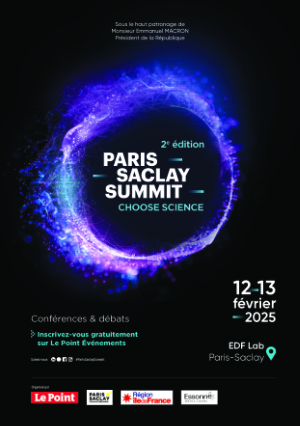Universal deep learning model for tumor lesion segmentation
| ABG-127662 | Master internship | 6 months | > 600 € |
| 2024-12-19 |
- Computer science
- Health, human and veterinary medicine
- Engineering sciences
Employer organisation
Website :
Founded in Nancy in 1999, Banook is a cardiac safety central provider specialized in the centralization of cardiac data derived from electrocardiograms (ECG) and central imaging within clinical trials. Banook relies on a network of renowned Key Opinion Leaders and a CTMS (Atrium) that ensures secured and automated data centralization. Banook serves as a key partner for pharmaceutical laboratories, biotechnology companies and generalist Contract Research Organizations (CROs) in conducting their clinical trials. While historically based in Nancy, Banook has gradually expanded internationally, with a presence in Canada and Germany following the acquisition of the Munich-based company Nabios Gmbh in 2021 and the opening of an office in Boston in 2022. The team of approximately 70 professionals is led by Alexandre Durand-Salmon
Description
Project overview
Accurate and reliable tumor segmentation on medical images is critical for diagnosing and managing cancer. While deep learning (DL) models have shown great promise in automating this process, the standard methodology for training these models consists in developing separate models for specific medical objects (e.g., organs or tumors) and imaging modalities (e.g., MRI, CT, and PET), which limits their generalizability. Furthermore, existing DL frameworks often lack uncertainty quantification, which is essential to assess model reliability, especially in cases of ambiguous or low-quality imaging data. This research project thus aims to develop a DL-based tumor segmentation model that works across multiple imaging modalities, organs and tumor types, and provides well-calibrated confidence estimates alongside its predictions.
Internship objectives
- Define a model building and evaluation pipeline that leverages publicly available datasets (e.g., Cancer Imaging archive [1], Medical Segmentation Decathlon [2], SA-Med2D-20M [3])
- Propose a universal deep learning framework [4] that allows to segment tumor lesions across imaging modalities, organs and tumor types
- Incorporate uncertainty quantification [5] to the proposed framework
References
- Prior, F., et al. (2017). The public cancer radiology imaging collections of The Cancer Imaging Archive. Scientific Data, 4(1), 1-7.
- Antonelli, M., et al. (2022). The medical segmentation decathlon. Nature Communications, 13(1), 4128.
- Ye, J., et al. (2023). SA-MED2D-20M dataset: Segment anything in 2D medical imaging with 20 million masks. arXiv:2311.11969.
- Ma, J., et al. (2024). Segment anything in medical images. Nature Communications, 15(1), 654.
- Lambert, B., et al. (2024). Trustworthy clinical AI solutions: a unified review of uncertainty quantification in deep learning models for medical image analysis. AI in Medicine, 102830.
Supervision environment
The 6-month internship is funded by Banook Group, a company specialized in drug safety clinical trials and headquartered in Nancy (France). During the internship, you will be supervised by researchers at Banook and the IADI laboratory (Inserm U1254, CHRU Nancy Brabois).
Profile
Image processing, Deep learning, Programming with Python and its PyTorch library
Starting date
Vous avez déjà un compte ?
Nouvel utilisateur ?
Get ABG’s monthly newsletters including news, job offers, grants & fellowships and a selection of relevant events…
Discover our members
 Généthon
Généthon  Tecknowmetrix
Tecknowmetrix  Laboratoire National de Métrologie et d'Essais - LNE
Laboratoire National de Métrologie et d'Essais - LNE  TotalEnergies
TotalEnergies  ONERA - The French Aerospace Lab
ONERA - The French Aerospace Lab  Nokia Bell Labs France
Nokia Bell Labs France  Institut de Radioprotection et de Sureté Nucléaire - IRSN - Siège
Institut de Radioprotection et de Sureté Nucléaire - IRSN - Siège  CASDEN
CASDEN  PhDOOC
PhDOOC  MabDesign
MabDesign  Groupe AFNOR - Association française de normalisation
Groupe AFNOR - Association française de normalisation  ADEME
ADEME  ANRT
ANRT  Ifremer
Ifremer  SUEZ
SUEZ  CESI
CESI  MabDesign
MabDesign  Aérocentre, Pôle d'excellence régional
Aérocentre, Pôle d'excellence régional  Institut Sup'biotech de Paris
Institut Sup'biotech de Paris




